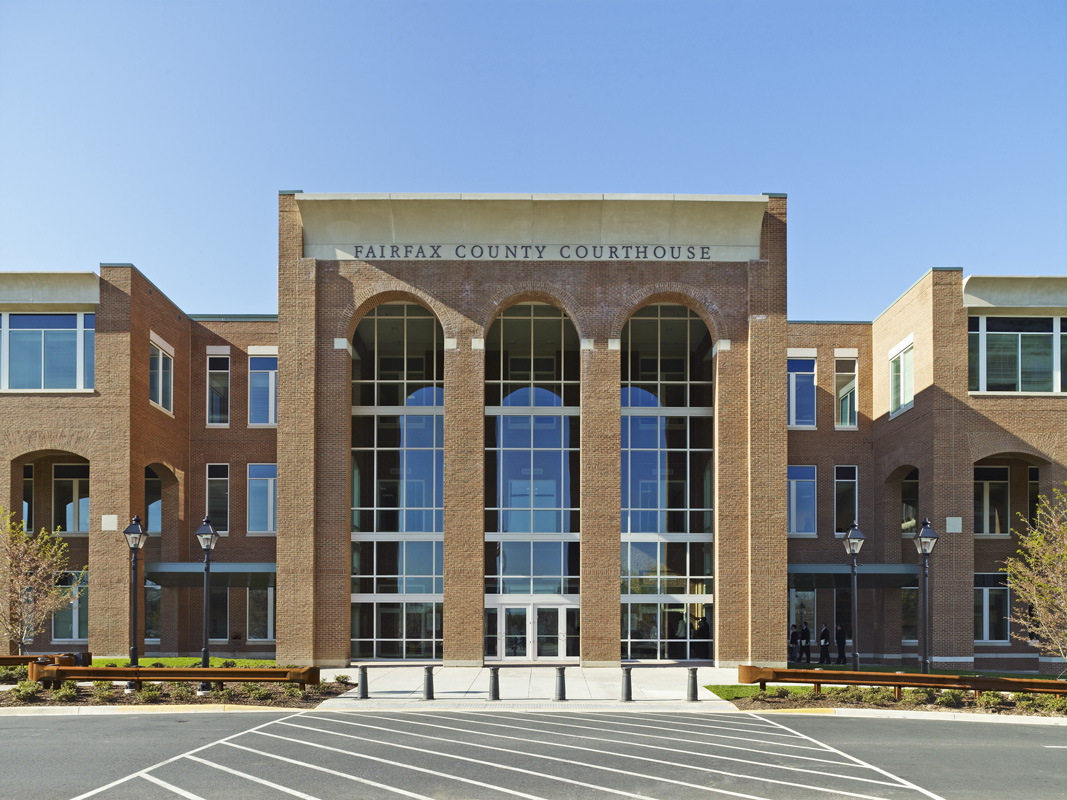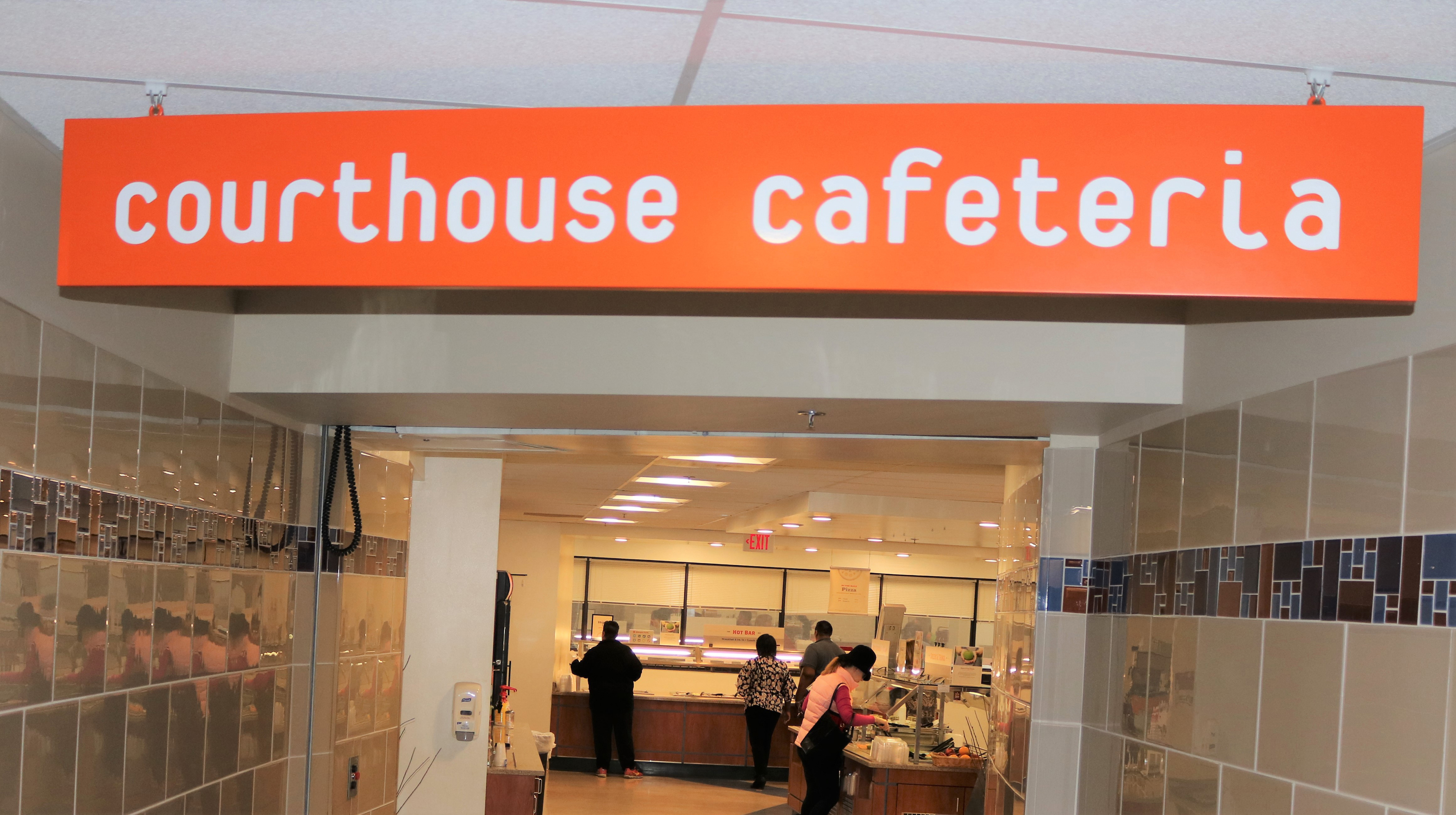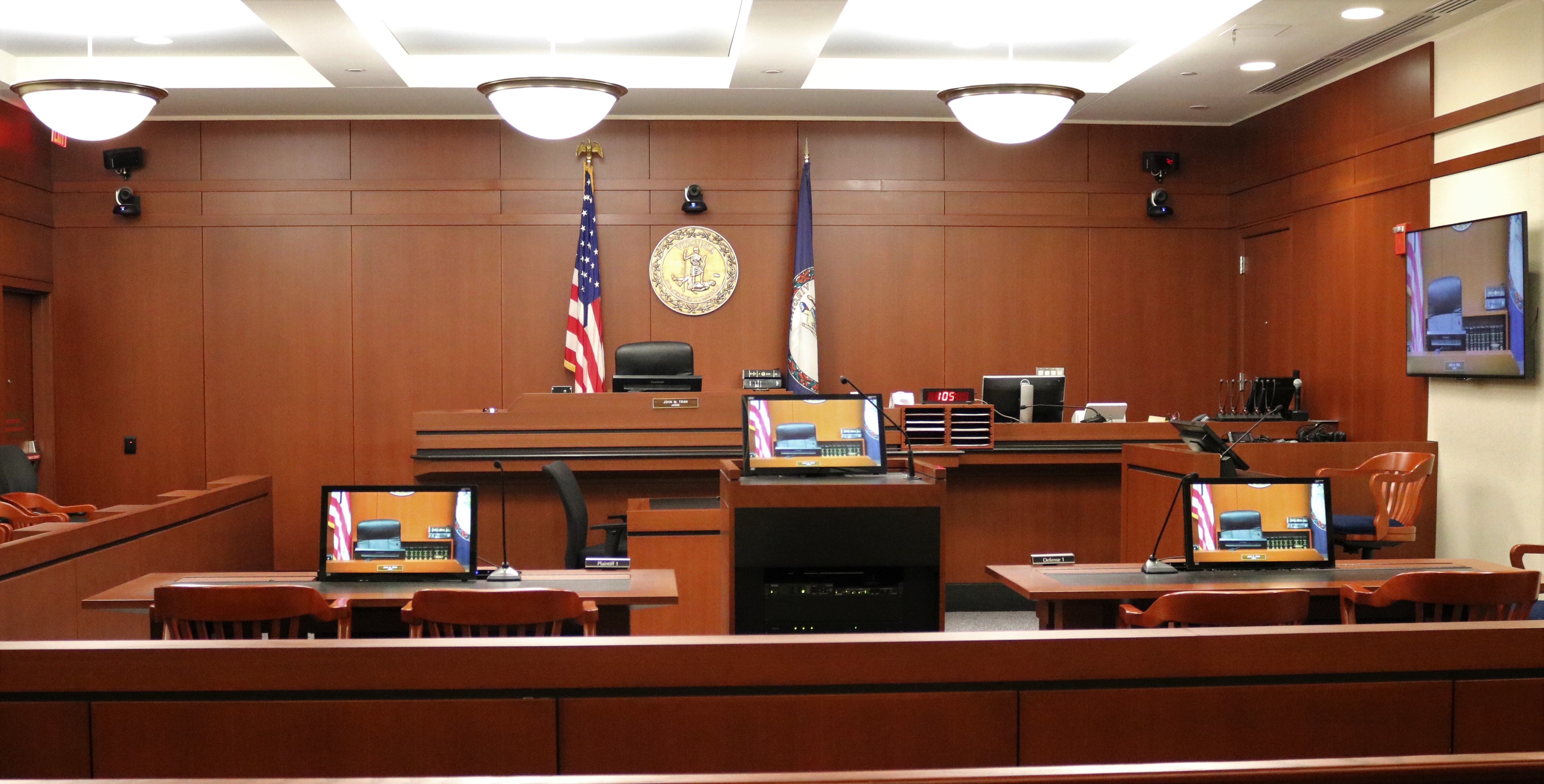Fairfax County Circuit Court: Your Guide To Justice In Virginia
Navigating the complexities of the legal system can often feel daunting, especially when it involves understanding the specific functions of various courts. In Virginia, the court system is structured to handle a diverse range of legal matters, and among its most significant components is the Circuit Court. Specifically, the Fairfax County Circuit Court stands out as a crucial institution, serving as a cornerstone of justice for residents of Fairfax County and Fairfax City. This comprehensive guide aims to demystify its operations, services, and the vital role it plays in the lives of countless individuals.
From civil disputes to serious criminal charges, and even the preservation of historical records, the Fairfax Circuit Court is a hub of legal activity. Its unique position within the Virginia judicial system, coupled with its sheer size and scope, makes it an essential entity for anyone seeking legal recourse or information. Understanding how this court operates, what types of cases it handles, and how to access its services is key to empowering citizens and ensuring informed participation in the legal process.
Understanding Virginia's Circuit Courts
Before diving into the specifics of the Fairfax County Circuit Court, it's helpful to understand its place within the broader Virginia judicial system. The Commonwealth of Virginia operates a three-tiered court system designed to handle various legal matters efficiently. At the top is the Supreme Court of Virginia, followed by the Court of Appeals of Virginia, and then the trial courts: Circuit Courts, General District Courts, and Juvenile and Domestic Relations District Courts.
The Virginia Circuit Court system comprises 31 judicial circuits, encompassing 120 separate circuit courts across the state's counties and cities. These courts are known as the trial courts of general jurisdiction, meaning they have the authority to hear a wide array of cases, both civil and criminal, without limitations on the amount of money involved or the severity of the offense. This broad authority distinguishes them from the General District Courts, which handle smaller claims and less severe criminal offenses, and the Juvenile and Domestic Relations District Courts, which focus on matters involving minors and family issues.
For citizens across Virginia, Circuit Courts offer various online services, including access to case status information, directories, forms, and programs. While many of these services are centralized, the Fairfax County Circuit Court operates with some unique distinctions, particularly concerning online case access, which we will explore in detail.
The Fairfax County Circuit Court: A Pillar of Justice
Located prominently in the Fairfax County Judicial Center, the Fairfax Circuit Court, also known as the 19th Judicial Circuit, is not just another court; it is the largest trial court in Virginia. Its sheer scale and the volume of cases it handles underscore its critical importance to the region. Serving both the residents of Fairfax County and Fairfax City, this court is where many significant legal battles are fought and resolved.
The court's operational hours are generally consistent with standard business days, though specific divisions may have slightly varied schedules. For instance, the Civil Division, a key component of the Fairfax County Circuit Court, is located on the third floor of the Fairfax County Courthouse at 4110 Chain Bridge Road in Suite 320 and maintains specific hours of operation. Understanding these details is crucial for anyone planning a visit or needing to interact directly with the court.
The court's role extends beyond just hearing cases; it is a repository of vital records, court records, and deeds, making it a central point for accessing public records that are fundamental to property ownership, historical research, and personal legal documentation. The court's commitment to accessibility, despite its unique operational aspects, is evident in its efforts to provide information and services to the public.
Jurisdiction and Case Types: What the Court Handles
As a trial court of general jurisdiction, the Fairfax County Circuit Court possesses broad authority to hear a wide range of legal matters. This includes both civil and criminal cases, distinguishing it as a primary venue for serious legal proceedings in the area. Understanding its specific jurisdiction helps individuals determine where their case might be heard.
In civil matters, the Circuit Court handles most cases with claims exceeding $25,000. This means that significant disputes involving large sums of money, such as complex contract disputes, personal injury claims, or property disputes, are typically heard here. Furthermore, the Circuit Court shares authority with the General District Court to hear matters involving claims between $4,500 and $25,000. This concurrent jurisdiction allows for some flexibility, though the complexity and nature of the case often dictate which court is more appropriate.
On the criminal side, the Fairfax Circuit Court handles all felony cases, which are the most serious criminal offenses punishable by more than one year in prison. It also hears appeals from the General District Court and Juvenile and Domestic Relations District Court for both civil and criminal matters. This appellate function is crucial, providing an avenue for review of decisions made in lower courts.
Beyond these primary categories, the court also handles a variety of other legal matters, including divorce cases, wills, trusts, and real estate disputes. Its comprehensive authority ensures that most significant legal issues arising in Fairfax County and Fairfax City find their resolution within its chambers.
Navigating the Fairfax Circuit Court: Divisions and Operations
The Fairfax County Circuit Court is structured into several divisions to efficiently manage its vast caseload. While the "Data Kalimat" specifically mentions the Civil Division and Criminal Division, it's important to recognize that the court's overall operations are meticulously organized to process a high volume of cases.
The Civil Division, as noted, is conveniently located on the third floor of the Fairfax County Courthouse. This division is responsible for handling all civil litigation, from the initial filing of complaints to the final judgments. This includes everything from personal injury lawsuits and medical malpractice claims to business disputes and petitions for injunctions. Understanding the specific location and hours of this division is paramount for attorneys, litigants, and the public needing to file documents or inquire about civil cases.
Similarly, the Criminal Division manages all felony prosecutions and appeals from misdemeanor convictions originating in the General District Court. The coordination between these divisions, and with other local law enforcement and legal entities, is vital for the smooth functioning of justice in the county. The court's operations are supported by a dedicated staff, including clerks, administrators, and judicial assistants, all working to facilitate the legal process for the fifteen judges who preside over the court's numerous cases.
Accessing Information and Records: The Digital Divide
In an increasingly digital world, the ability to access court information online is a critical convenience for citizens. The Virginia court system has made significant strides in this area, offering various online services for circuit courts across the state. However, when it comes to the Fairfax County Circuit Court, there's a notable distinction that users must be aware of.
The Statewide System vs. Fairfax's Approach
Many circuit courts in Virginia utilize a statewide case management system that allows users to search cases by name, case number, or hearing date. This system, often referred to as the Virginia Circuit Court Case Management System (CCMS), aims to streamline the process of accessing circuit court case information and seeks to eliminate barriers to information, empowering citizens with easy access. However, the "Data Kalimat" explicitly states a crucial point: Fairfax County Circuit Courts do not use this statewide system and require direct contact for case information.
This means that if you are trying to find case information for the Fairfax Circuit Court, you cannot rely on the general statewide search portals. Instead, you will likely need to contact the court directly, visit the courthouse in person, or utilize specific local online resources that Fairfax County may provide independently. This distinction is vital for attorneys, litigants, and the public to avoid frustration and ensure they are looking in the correct place for information.
While the statewide system offers online access to adult criminal case information in Juvenile & Domestic Relations District Courts, and criminal and traffic case information in General District Courts, the specific details for Fairfax Circuit Court cases often necessitate a different approach. This highlights the importance of checking court-specific guidelines.
Obtaining Vital Records and Deeds
Beyond case information, the Fairfax County Circuit Court also serves as a repository for vital records and deeds. This includes records related to births, deaths, marriages, and property transactions. Accessing these public records is essential for various legal and personal reasons, from genealogical research to real estate transactions.
The "Data Kalimat" indicates that information about locations, fees, and online portals for obtaining these public records is available. While some records might be accessible online, others may require an in-person visit to the Fairfax County Courthouse or an offsite records center. The historic nature of some records, such as slavery records and those pertaining to racial equality, further underscores the court's role as a historical archive, preserving crucial aspects of the county's past.
It's always advisable to consult the official Fairfax County Circuit Court website or contact the Clerk's Office directly for the most accurate and up-to-date information on how to access specific vital records, court records, and deeds, including any associated fees or required procedures.
Behind the Bench: The Judges and Their Role
The strength and integrity of any court system largely depend on the caliber of its judges. The Fairfax County Circuit Court is presided over by fifteen judges, a significant number that reflects the court's status as the largest trial court in Virginia. These judges are responsible for interpreting laws, overseeing trials, and rendering judgments that profoundly impact the lives of individuals and the community at large.
Each judge brings a wealth of legal experience and expertise to the bench, ensuring that cases are handled with fairness and adherence to the law. The "Data Kalimat" specifically mentions Azcarate as a Chief Judge of the Fairfax Circuit Court. The Chief Judge plays a crucial administrative role, overseeing the court's operations, managing its calendar, and ensuring its smooth and efficient functioning.
The presence of fifteen judges allows the Fairfax Circuit Court to manage its extensive caseload effectively, ensuring that justice is administered in a timely manner. Their collective decisions shape the legal landscape of Fairfax County and serve as precedents for future cases, reinforcing the court's authoritative position within the state's judicial system.
Historical Context and Modern Relevance
The Fairfax County Circuit Court is not just a modern legal institution; it also carries a rich history that intertwines with the very fabric of Virginia's past. The "Data Kalimat" mentions that the court handles civil and criminal cases, but also specifically highlights its role in preserving slavery records and addressing issues of racial equality. This indicates that the court's functions extend beyond contemporary legal disputes into the realm of historical preservation and social justice.
The preservation of slavery records within the court's archives provides invaluable insight into a painful yet crucial period of American history. These records are not merely documents; they are testaments to the lives of individuals and the legal frameworks that governed society centuries ago. Their accessibility, even if requiring direct contact or specific procedures, contributes significantly to historical research, genealogical studies, and a deeper understanding of the evolution of civil rights.
In modern times, the Fairfax Circuit Court continues to be at the forefront of legal developments, adapting to new laws, technologies, and societal challenges. Its status as the largest trial court in Virginia means it often handles complex, high-profile cases that set precedents or reflect significant social changes. This ongoing relevance, coupled with its historical depth, makes the Fairfax County Circuit Court a dynamic and essential institution in the Commonwealth.
Connecting with the Court: Dockets and Public Correspondence
For those involved in legal proceedings or simply interested in court activities, understanding how to view and search court dockets is essential. A docket is an official summary of proceedings in court that includes information about the cases scheduled for a particular day or period. Accessing dockets allows individuals to track the progress of cases, identify hearing dates, and understand the general flow of court business.
Understanding Court Dockets
While the statewide system for case searching doesn't apply to Fairfax County Circuit Court in its entirety, the "Data Kalimat" confirms that citizens can learn how to view and search court dockets for civil and criminal cases in Fairfax County Court. This suggests that there are specific local procedures or online portals managed by Fairfax County itself for this purpose. For anyone needing to follow a specific case or simply observe court proceedings, familiarizing oneself with these local methods is crucial.
Dockets typically provide details such as case numbers, party names, attorneys involved, and the nature of the hearing or action scheduled. They are invaluable tools for legal professionals, journalists, and the general public seeking transparency and information about court activities. Always refer to the official Fairfax County Circuit Court website or contact the Clerk's Office for the most accurate information on how to access their dockets.
Communicating with Public Officials
The "Data Kalimat" also touches upon the broader aspect of public interaction with government, noting that "Any email or other correspondence sent to a member of the Board of Supervisors, or any other public official and/or employee of Fairfax County in the transaction of..." This highlights the principle of public transparency and accountability. While not directly about court cases, it underscores the open nature of government in Fairfax County, extending to its judicial branch.
Citizens have the right to communicate with public officials, including those within the court system, regarding official business. However, it's important to understand the appropriate channels and protocols for such communications, especially when they pertain to ongoing legal cases, to avoid any impropriety or misunderstanding. The court's official website typically provides guidelines for contacting its various departments and personnel.
The Future of Access: Streamlining Information
Recognizing the ongoing need for improved public access to information, the "Data Kalimat" mentions a "proposed online service aims to streamline the process of accessing circuit court case information and seeks to eliminate barriers to information, empowering citizens with easy" access. This indicates a forward-looking approach by the Virginia judicial system, even for courts with unique operational aspects like the Fairfax County Circuit Court.
Such initiatives are vital in a modern society, as they can significantly reduce the time and effort required for individuals to obtain crucial legal information. By embracing digital solutions, the court system can enhance transparency, improve efficiency, and better serve the public. While specific details of this proposed service for Fairfax County Circuit Court are not fully outlined in the provided data, its mention signifies a commitment to evolving with technological advancements and citizen needs.
The goal is clear: to make legal information more accessible and understandable, thereby empowering citizens to navigate the legal landscape with greater ease and confidence. This future vision aligns with the principles of E-E-A-T, ensuring that the court system remains expert, authoritative, and trustworthy in its delivery of justice and information.
Conclusion
The Fairfax County Circuit Court stands as a cornerstone of the legal system in Northern Virginia, playing a pivotal role in administering justice for a vast and diverse population. From its broad jurisdiction over civil and criminal cases to its unique approach to online information access and its historical significance, the court is a complex yet vital institution. Understanding its structure, functions, and the specific ways to interact with it empowers citizens to navigate legal matters more effectively.
Whether you are a litigant, a legal professional, a researcher, or simply an engaged citizen, knowing the ins and outs of the Fairfax Circuit Court is indispensable. While it maintains certain distinctions, particularly in its digital services compared to other Virginia circuit courts, its commitment to justice and public service remains unwavering. As the court continues to evolve, potentially with new online services, its fundamental role in upholding the law and serving the community will endure.
We hope this comprehensive guide has shed light on the intricacies of the Fairfax County Circuit Court. Do you have experiences or insights to share about navigating this court system? We invite you to leave a comment below. For more detailed information on specific procedures or forms, always refer to the official Fairfax County Circuit Court website. Your understanding is key to an empowered citizenry.

Fairfax County Courthouse PORTFOLIO MF Studio - CountyForms.com

Jury Overview | Circuit Court

Jury Overview | Circuit Court